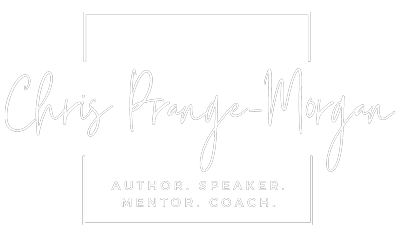Somewhere months into the Covid-19 pandemic, I remember reading about the collective sigh of relief parents everywhere were exhaling. While mixed with fearand dread, comments like “I can get off the parenting treadmill for a while,” “I’m finally learning how to relax with my kids,” and “I’m really liking this slower pace” were common. In the digital age, we’ve become so inundated with expectations of parenthood that echo the unrealistic expectations of life in general—that somehow, perfection is possible.
While ascribed expectations for parenthood have always been around, the supportive “villages” of past generations have receded in the wake of parent job demands and increased productivity. This isn’t a value judgment. The rising costs of living—housing, healthcare, and virtually all activities—all require significant investment within a limited daily and weekly schedule. And if you’re anything like me, parenting guilt creeps in as I realize how dang hard it can be to balance all of the demands.
When my kids were younger, I was sucked into all of the expectations—soccer, swim, and instrument lessons, playdates, and club sports. Volunteering in the classroom and sitting on various committees. I never felt I was doing enough—until some health challenges forced our family to confront our limitations and reexamine what was important.
Many adoptive families, including ours, ascribed to an attachment parenting style in an attempt to establish a sense of attunement with our children—most of whom have experienced early abandonment, neglect, or other types of trauma. But this style of parenting felt countercultural amidst the “more is better” expectations I found myself railing against. I wondered, Where’s the sweet spot? How can I parent in a way that feels right and intuitive? Less guilt-ridden and ascribed, and more deep and real?
Pediatrician and psychoanalyst D.W. Winnicott introduced the idea of the “good enough mother” in 1953, addressing the fact that striving to be the “perfect” or “best” mother can cause some unintended problems for parents and kids alike. His cautionary wisdom rings true in these days of technology and social media more than ever.
In her Today’s Parent article “Why Good-Enough Parenting Needs to Be a Movement,” Crysta Balis shares: “Rationally we know no parent or child is perfect, but that doesn’t stop us from striving for perfection or assuming meddlesome roles, like gatekeepers of our kids’ distress, or CEOs of their lives. But this is just helicopter, snowplow, lawn mower, or even tiger parenting, which all fall under the notorious over-parenting umbrella. While there’s no damning evidence against good-enough parenting, research has long established that over-parenting can stunt our kids’ emotional growth and executive functioning, and it leads to anxiety, depression and feeling helpless.”1
As I stop to think about what often drives my inner parental angst, it’s the feeling of pressure that originates from a place of fear of not being good enough. That’s not the best place to start from. I know my kids need me at my best self, more than anything. And trust is a better starting point than fear.
Living with the “good enough” mindset can be incredibly freeing, and it makes sense. As Dr. Alexandra Sachs, M.D. shares: “An imperfect mother helps her child gain the skills to tolerate frustration, become self-sufficient, and learn to soothe himself. These are the hallmarks of grit—a personalitytrait that can help your child succeed in life.”2
Didn’t get an A in that class? She’ll be OK. Didn’t take first in a sports competition? Life goes on. The twists and turns on life’s road bend too often to see clearly into the past or the future. We are truly always learning, and making it up as we go.
“Good enough parenting” might be a paradigm shift, but it’s a worthy one. And it’s an ongoing practice. Role modeling self-love and acceptance provides the best possible foundation for my children to venture out into the world, and to know they will be OK, even in the rocky patches. In a time of widespread global anxiety and angst, the ability to approach the world from a place of gentleness and loving-kindness is the best thing we can offer.
References
[1] Balis, C. Why good-enough parenting needs to be a movement. https://www.todaysparent.com/family/parenting/good-enough-parenting/. June 2021.
[2] Sacks, A. The Good Enough Mother: Aiming to be the “perfect” can cause problems for both you and your child. https://medium.com/@alexandrasacks/the-good-enough-mother-ab19fd7dad06. May 2018.
